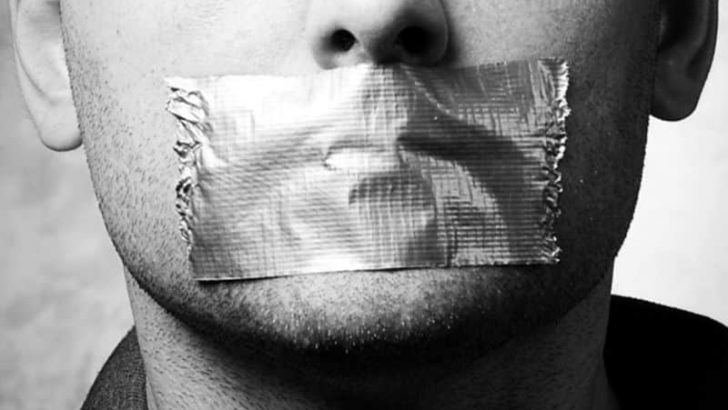It’s harder than ever to speak out against unfair criticism of the Church, writes David Quinn
A few days before Christmas I posted a Tweet which pointed out that I often come across people these days who find it hard to be open about their Catholic faith both in the workplace and even sometimes in their social lives. There was an instant and strong reaction. Hundreds of people ‘liked’ the Tweet, which is a way of showing support for it, and there were lots of replies.
The replies fell into two main camps. One group said they had come across something similar in their own lives, while the other group were delighted that some Catholics can’t be open about their faith anymore. They said it was well deserved given all the terrible things the Church has done in this country. In other words, they weren’t denying what I said. On the contrary.
I appeared on the Hard Shoulder (Newstalk) a couple of days later to discuss the Tweet with the show’s presenter, Ivan Yates. Towards the end of the item, the reactions started to come in, and again the general reaction was that Catholics ought to be keeping their heads down given their awful history in Ireland.
A couple of people asked me to explain what I meant by being ‘open’ about your Faith, and that is a fair enough question. What I certainly didn’t mean was someone suddenly discussing why they are Catholic to a colleague sitting next to them at work and trying to persuade them to come to Mass next Sunday. That would be as out of place as trying to persuade them how to vote at the next election. There is a time and a place for everything. Work is not the place for religious or political proselytising.
On the other hand, if a practising Catholic has to sit through their lunch break listening to colleagues attack the Church and feels they cannot answer back because of the backlash they might receive, that is another thing entirely.
Teachers
I have had teachers approach me after talks to describe how they sometimes have to endure fellow teachers in the staff room attacking the Church even though they work in a Catholic school. They have to decide whether to be silent or risk an argument and find themselves in a minority of one and then have colleagues talk about them behind their backs.
I’ve had lawyers tell me that they would like to speak up about this or that issue connected to their Faith, but can’t, because they fear it will affect their livelihoods, especially if they receive work from the State. If they have a young family, it is hard to tell them to take the risk and speak out anyway.
Likewise, I’ve had academics tell me if that if they were too openly Catholic, or too outspoken about (say) the right to life issue, they would not be given a permanent position, or might lose out on a promotion, or not have articles published in academic journals.
University students have told me they get mocked for saying they go to Mass. The same goes for second level students.
It is now routine for Catholics to have to listen to what the Church believes about marriage, the right to life, women priests, celibacy, sex in general, come under sustained attack. They are also subjected to an extremely one-sided version of Catholic history in which only the worst episodes are highlighted, and the best are blanked out.
This is not to say that Catholics should be shielded from criticism. Far from it. But when the attacks become so incessant and so one-sided that even ordinary Catholics feel they can’t be open about their faith then we have a problem because we end up with a sort of social suppression of the faith, as distinct from a legal suppression.
Any reasonable person has to agree that if lawyers, academics and others fear for their careers by being too open about their faith, that is a bad thing. Likewise, if students are mocked by other students for saying they go to Mass. And so on.
I think we need to become more willing to call out anti-Catholicism when we see it, because it does exist. Anti-Catholicism goes beyond fair criticism of the Church and crosses the line into blinkered, unremitting hostility.
For example, the Irish media are well able to recognise the parts of the English media that are anti-EU. Certain newspapers in Britain interpret everything the EU does in the worst possible way, are keen to highlight or exaggerate its failings, overlook its successes and want it to fail.
There are plenty of people in Ireland who have exactly the same attitude towards the Catholic Church and the result is an incessant drumbeat of hostility that grew very loud again in the run-up to the papal visit and during it.
This must have a knock-on effect for ordinary Catholics, and it does, in the ways described above.
What should we do? One thing is to become better at standing up for what we believe and to take a few more risks in doing so. Another is to demand more fair-mindedness from the Church’s critics. A full account of the Church in Ireland has to give more credit for all the good things it has done historically, and is doing to this day.
We also need more leadership from the institutional faith. The bishops, too, must be more willing to call out unfair criticism of the Church and do so in a more systematic way.


 David Quinn
David Quinn
